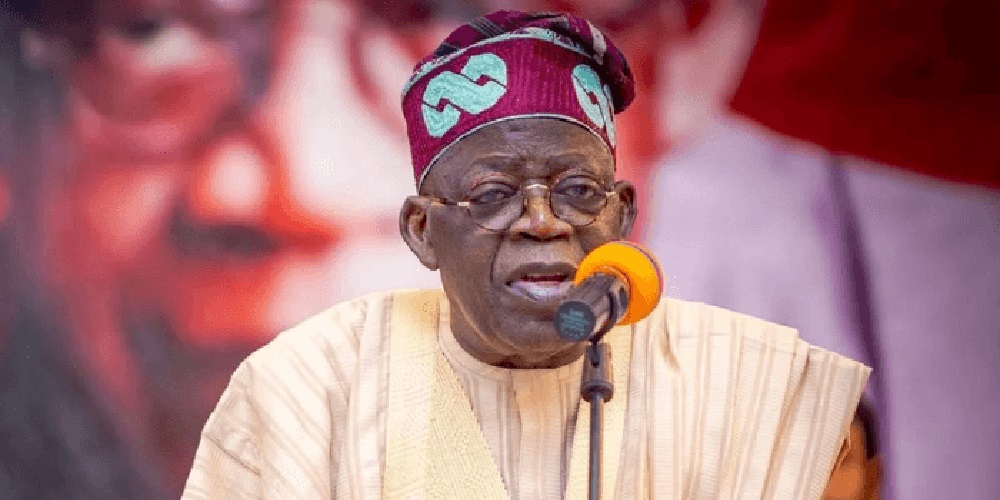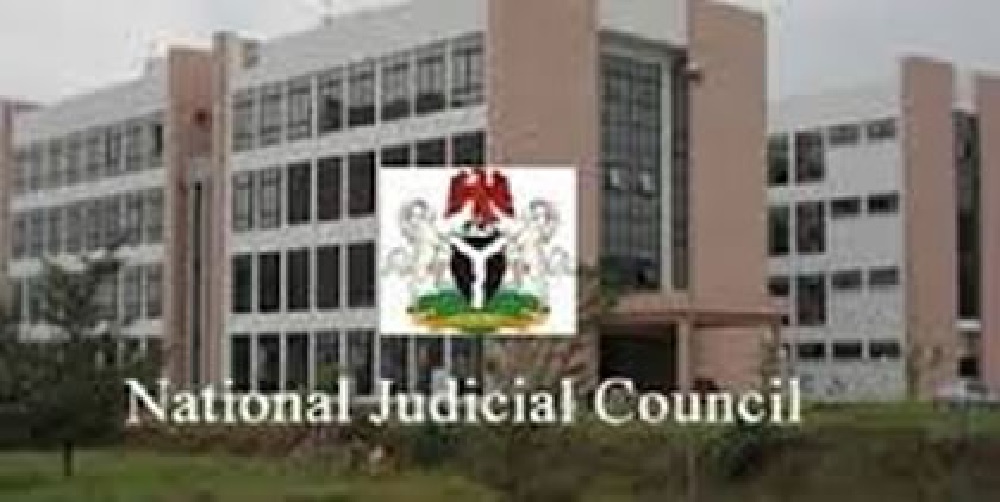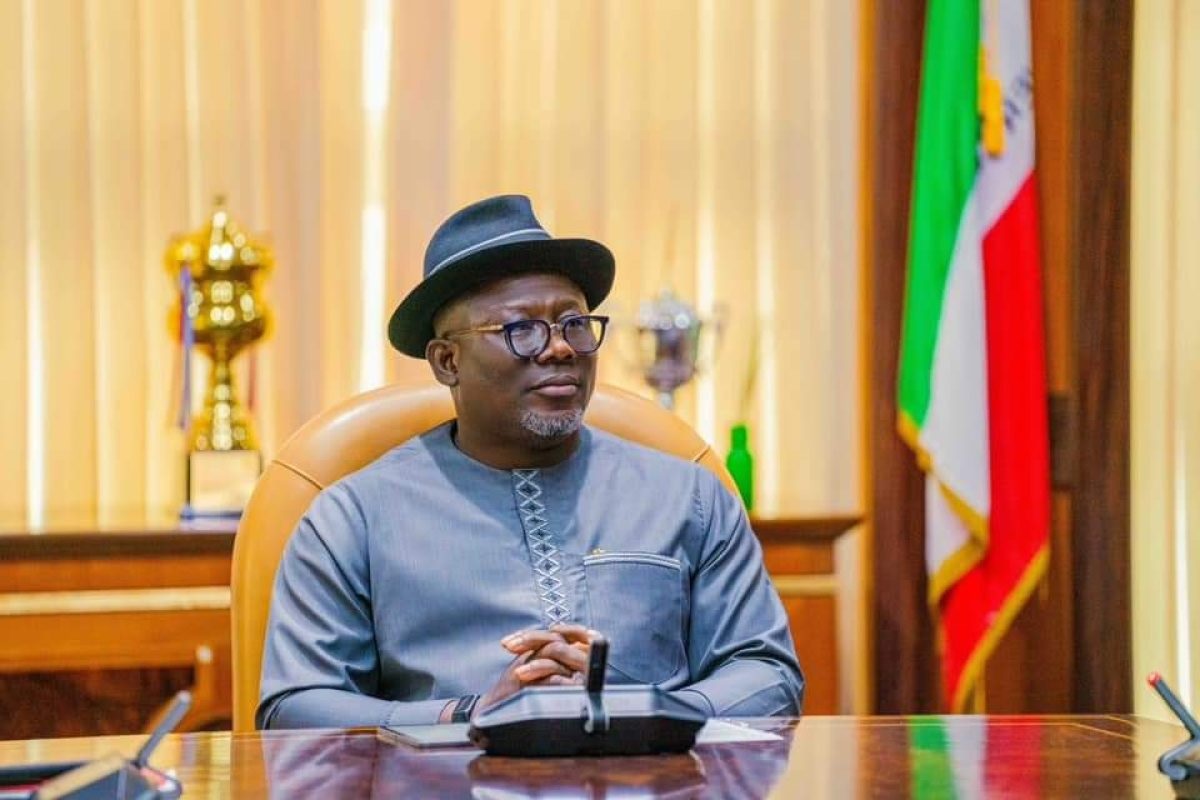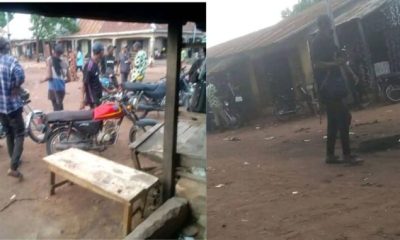News
ECOWAS: Tinubu Calls For Suspension Of Sanctions On Guinea, Mali, Niger, Burkina Faso

President Bola Tinubu has called for the suspension of economic sanctions imposed on Niger, Mali, Burkina Faso, and Guinea by ECOWAS.
Presidential spokesman, Ajuri Ngelale, dropped the hint in a statement issued in Abuja on Saturday.
Speaking at the Extra-ordinary Summit of ECOWAS in Abuja on Saturday, President Tinubu, who is the Chairman of the Authority of Heads of State and Government of the organization, stated that: “Everything we did was in hopes of persuading our brothers that there existed a better path, a path that would lead to genuine improvement of their people’s welfare through democratic good governance. And this was a path each of our nations had solemnly agreed with one another pursuant to formal regional treaty and protocol.“
However, the sanctions that we contemplated might help lead our brothers to the negotiating table have become a harsh stumbling block. In my mind and heart, that which is hurtful yet ineffective serves no good purpose and should be abandoned.
“ECOWAS was established for the unassailable objective of improving the lives of the people of this region through fraternal cooperation among all member states. This edifice was cemented on the strong foundation and apt conviction that, united as one, we can be the true masters of our destiny.”
The President further explained that ECOWAS took the steps it did based on the regional ideals of security, social stability; democratic governance, political freedom, broad-based prosperity, and sustainable economic development through fair opportunity for each and every one in West Africa.
He said neither hatred nor hidden motive influenced the steps taken and that there was never any intention to douse or undermine the legitimate political aspirations of any member state or to advance the interests of any outside party.
In calling for the suspension of sanctions, President Tinubu stressed that: “We must take note of the approach of the holy month of Ramadan and of Lent. Whether you pray in the mosque or in the church, this represents a time for compassion, hope, and harmony. It is a time that we must not only seek God but also a closer relationship with brother and neighbour.
“In the Spirit of the holy month and of the Lenten period, and with hearts bestirred by goodwill towards all our people, let us extend a hand as brothers and friends to those in Niger, Mali, Burkina Faso, and Guinea.
“What I suggest in real and practical terms is that we, my colleagues and fellow heads of state in ECOWAS, indefinitely suspend economic sanctions against Niger, Mali, Guinea and Burkina Faso and against the leadership of the military authorities in those nations.”
The President asked that ECOWAS facilitate the unfettered flow of foodstuffs, medicines and other humanitarian items to the people of these nations, especially to the most vulnerable, adding that for Nigeria, this will also mean the prompt resumption of export of electric power to Niger.
“In this vein, suspension of sanctions is an important but initial step. What we seek is more than the breaking of the diplomatic logjam. We must use this very moment when things seem tense and progress unavailing, to forge greater cooperation within our community.
“We not only reach out to our brothers. Today, we say unto them — let us begin to work more earnestly together for the economic development of our people and towards confronting those modern challenges that respect no borders or boundaries. Challenges ranging from climate change to violent extremism to illegal pilfering of our precious natural resources require that we join together in progress or we fail separately.
“As leaders of ECOWAS, we have accepted the honour and duty to draft the history of the region and its people during our tenure in office. We have also accepted the honour and duty to reach out to our brothers, letting them know this regional home belongs to us all. I shall do my utmost in this regard. I humbly beseech that you do the same.
“For these reasons, we must suspend sanctions and return to brotherly dialogue. I call on the leadership in Burkina Faso, Guinea, Mali, and Niger to embrace the hand extended,” the President stated.
News
NJC investigates 18 Imo judges over suspected age falsification

The National Judicial Council has launched a probe into 18 judges in the Imo State judiciary over allegations of age falsification, in a development raising fresh concerns about integrity and transparency within Nigeria’s judicial system.
The NJC, in a statement on Thursday by its Deputy Director of Information, Kemi Ogedengbe, confirmed that the allegations were being treated with utmost seriousness and were currently under review.
“Allegations of this nature require detailed investigation before any action can be taken,” Ogedengbe stated.
“The NJC is investigating the allegations and may take a decision by the end of the month. For now, we cannot act without completing our inquiries. The council will convene and make decisions on the matter.”
The investigation follows a petition submitted by a civil society group, Civil Society Engagement Platform, which described the matter as an “unprecedented breach of judicial integrity.”
The group alleged that the judges deliberately manipulated their birth records to either prolong their tenure or gain appointments within the judiciary.
In a letter addressed to the NJC Chairman and Chief Justice of Nigeria, Justice Kudirat Kekere-Ekun, the platform cited discrepancies in the judges’ official documents, including Law School registration forms, Department of State Services reports, and Nominal Rolls.
The petition, signed by CSEP’s Director of Investigation, Comrade Ndubuisi Onyemaechi, included what it described as compelling documentary evidence marked as Exhibits 001 to 018.
Among those named in the petition is Justice I. O. Agugua, who reportedly has two different birth dates—May 10, 1959, and May 10, 1960—and is also facing separate allegations of misconduct.
Justice C. A. Ononeze-Madu is alleged to have birth records stating both July 7, 1963, and July 7, 1965, while Justice M. E. Nwagbaoso is accused of presenting conflicting dates of birth—August 20, 1952, and August 20, 1962.
The remaining 15 judges also reportedly have varying inconsistencies in their personal data, a revelation that has intensified public scrutiny of the judiciary’s accountability mechanisms.
The NJC, which is constitutionally empowered to discipline judicial officers, is expected to reconvene soon to deliberate on the findings of its inquiry and take appropriate disciplinary actions where necessary.
The unfolding development comes amid mounting calls for institutional reforms to restore public trust in the judiciary and reinforce ethical standards across all arms of government.
News
Delta committed to safeguard its cultural heritage – Oborevwori

Delta State Governor, Sheriff Oborevwori, has reaffirmed his administration’s commitment to the preservation and promotion of the state’s rich and diverse cultural heritage, describing cultural festivals as vital tools for sustaining indigenous identity.
Oborevwori made this known on Thursday while receiving the President and leadership of the Organisation for the Advancement of Anioma Culture, who paid him a courtesy visit at Government House, Asaba.
Speaking during the meeting, the governor commended OFAAC for its over two decades of dedication to the promotion of Anioma cultural heritage, describing the body as a “vehicle of unity” in Delta State.
He pledged his administration’s full support for OFAAC and similar cultural organisations that contribute to peace, unity, and development.
“I commend OFAAC’s tirelessness and dedication to preserving Anioma culture, heritage, and identity,” Oborevwori said. “Your efforts are crucial in promoting our rich traditions and values.
As a government, we reaffirm our commitment to preserving cultural heritage across the state and supporting initiatives that promote festivals and language, which are essential in shaping our identity.”
Oborevwori also expressed gratitude to the people of Delta North for their overwhelming support during the last governorship election, noting that he secured victory in all nine local government areas within the Anioma region.
“Under our M.O.R.E. Agenda, we have implemented key projects across the Anioma nation and throughout the state. I am particularly grateful to the Anioma people for their strong support and love,” he said.
He further lauded the inclusiveness of OFAAC’s activities, noting its practice of inviting other ethnic groups to its events, which he said fosters unity and cultural harmony across the state.
Earlier, OFAAC President, Arc. Kester Ifeadi, said the purpose of the visit was to formally inform the governor about the group’s forthcoming cultural fiesta, scheduled for Easter Monday.
He described Oborevwori as a “detribalised leader” and commended his administration’s developmental strides across all three senatorial districts in the state.
Ifeadi reaffirmed the support of the Anioma people for the governor’s M.O.R.E. Agenda, emphasising that OFAAC would continue to be a platform for promoting unity among Delta’s various ethnic nationalities.
News
Scores killed as NAF fighter jet bombs insurgents’ stronghold in Sambisa forest

The Nigerian Air Force on Thursday announced that two coordinated airstrikes had successfully neutralised several terrorists and destroyed their hideouts in Borno State.
The precision strikes, carried out under the Air Component of Operation Hadin Kai, targeted known insurgent enclaves in Kollaram and Arra—two areas identified as long-standing terrorist strongholds within the Sambisa general area and the Southern Tumbuns.
According to a statement released by the Director of Public Relations and Information at NAF Headquarters, Air Commodore Edward Gabkwet, the first operation was conducted at approximately 5:30 a.m. in Kollaram, following credible intelligence and surveillance footage that confirmed the presence of high-value terrorist commanders and operational facilities.
“In a bold display of force and precision, the Nigerian Air Force, under Operation Hadin Kai, executed two highly successful air interdiction missions on April 15, 2025, targeting terrorist strongholds in Borno State’s Sambisa general area and the Southern Tumbuns,” the statement read.
“The first strike occurred at approximately 5:30 a.m. in Kollaram, a known insurgent hub. Intelligence reports, corroborated by surveillance footage, confirmed the presence of high-value terrorist commanders and several operational structures, including those equipped with solar panels. NAF assets executed a precision strike, eliminating numerous fighters and disabling key infrastructure.”
Later in the day, at about 3:55 p.m., another strike was carried out in Arra, also within the Sambisa axis.
According to Ejodame, real-time visuals obtained from Intelligence, Surveillance, and Reconnaissance missions revealed clusters of armed militants actively operating in the area.
“Precision-guided munitions were employed during the mission, resulting in the effective destruction of identified targets and significant disruption of the group’s operational capabilities,” he added.
Ejodame emphasised that the airstrikes form part of an ongoing and intensified aerial campaign aimed at degrading terrorist capabilities, dismantling leadership structures, and eliminating insurgent sanctuaries across the region.
Meanwhile, the Defence Headquarters said on Thursday that troops neutralised a notorious terrorist kingpin, Bello Kaura, in a precision airstrike conducted by troops of Operation Fasan Yamma.
Kaura was among the scores of terrorists neutralised by troops between April 10 and 16, 2025, according to the DHQ.
A statement by the Director, Defence Media Operations, Maj. Gen. Markus Kangye, said troops, in collaboration with other security agencies and hybrid forces, carried out a series of coordinated operations in Zamfara, Sokoto, Kaduna, Niger, Kwara States, and the FCT among others.
These operations, he said, were marked by fierce engagements with terrorists, leading to the killing of several insurgents, arrests of suspects, and recovery of a cache of arms and ammunition.
“Between 10 and 16 April 2025, troops conducted fighting patrols and made contact with terrorists in Anka, Tsafe, Talata Mafara, Kaura Namoda and Maru LGAs of Zamfara State as well as Gudu, Isa and Tangaza LGAs of Sokoto State. They conducted operations in Giwa, Chikun and Birnin Gwari LGAs of Kaduna State as well as Bida LGA of Niger State.
“During the encounters, many terrorists were neutralised, including an identified terrorist kingpin, Bello Kaura, in an air interdiction, arrested some of them, while 17 kidnapped victims were rescued,” he said.
He also said troops thwarted oil theft worth over ₦262.7m and arrested suspects.
“During the week under review, Operation DELTA SAFE foiled oil theft worth over N262,702,150.00 only.
“The breakdown indicates: 117,395 litres of stolen crude oil, 22,050 litres of illegally refined AGO, 6,000 litres of DPK and 8,060 litres of PMS. Additionally, they discovered and destroyed 102 crude oil cooking ovens, 94 dugout pits, 18 boats, four speedboats, 56 storage tanks, 164 drums and 42 illegal refining sites. Other items recovered include pumping machines, drilling machines, galvanised pipes, tricycles, motorcycles, mobile phones and nine vehicles,” he said.
Kangye assured the citizens of the Armed Forces’ commitment to protecting national sovereignty and ensuring the safety of all law-abiding citizens.
He said to deny the criminals freedom, the military would take the battle to them.
“We are taking the battle to the enemy to deny them freedom of action, making them thirst for surrender.
“I wish to reiterate the untiring commitment of the Armed Forces of Nigeria to dominate and act in defence of our nation’s sovereignty while guaranteeing the protection of all law-abiding citizens to promote the betterment of our society.
“Our operations across all theatres remain focused, intelligence-driven, and in line with the highest standards of professionalism and respect for human rights,” Kangye added.
He called on the civil populace to continue supporting military operations.
Kangye said, “We once again appeal that the civil populace trust us and see us as friends and partners working for the general good and well-being of the nation. We recognise the sacrifices made daily by our gallant troops, and we salute their courage and dedication.”
-

 News19 hours ago
News19 hours agoBREAKING: Unknown gunmen reportedly storm Senator Natasha’s family residence
-

 News22 hours ago
News22 hours agoSnub story on removal of Rivers Sole Administrator, it’s FAKE-Chief Registrar
-

 News21 hours ago
News21 hours agoSAD! Again, Alleged Herdsmen Attack Three Benue Communities
-

 News14 hours ago
News14 hours agoAbuja light rail project must be commissioned on May 29-Wike vows
-

 News19 hours ago
News19 hours agoLawmaker Slams NBA Over Rivers Crisis, Demands Return of N300m
-

 Politics21 hours ago
Politics21 hours agoPDP govs are jokers, can’t stop coalition train, Atiku boasts
-

 News14 hours ago
News14 hours agoJust in: Alleged Herdsmen Armed With AK-47 Rifles Take Over Communities In Benue State
-

 News18 hours ago
News18 hours agoFinally , Lagos Court frees Quadri, young Nigerian who stood before Obi’s convoy in viral photo






